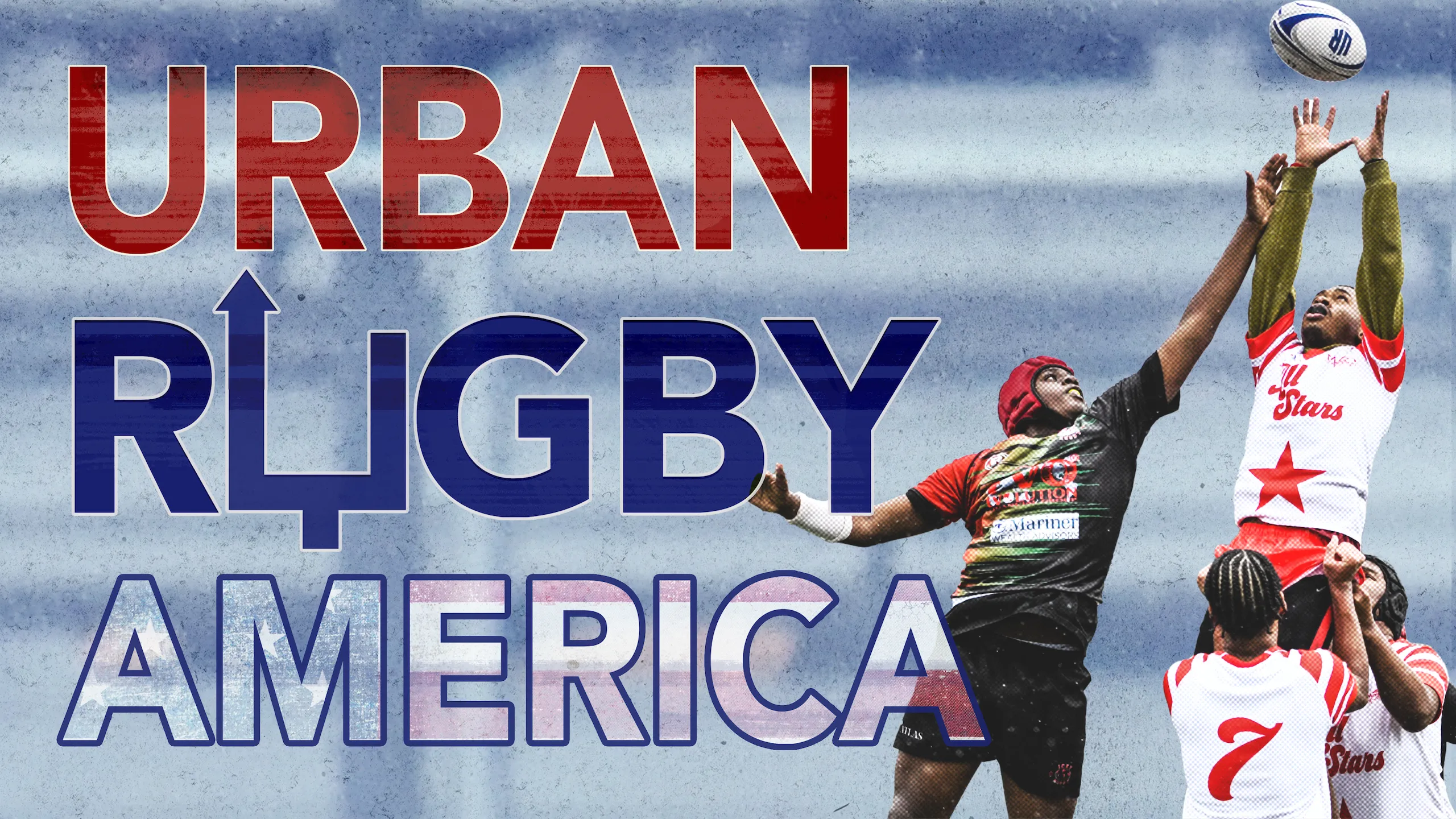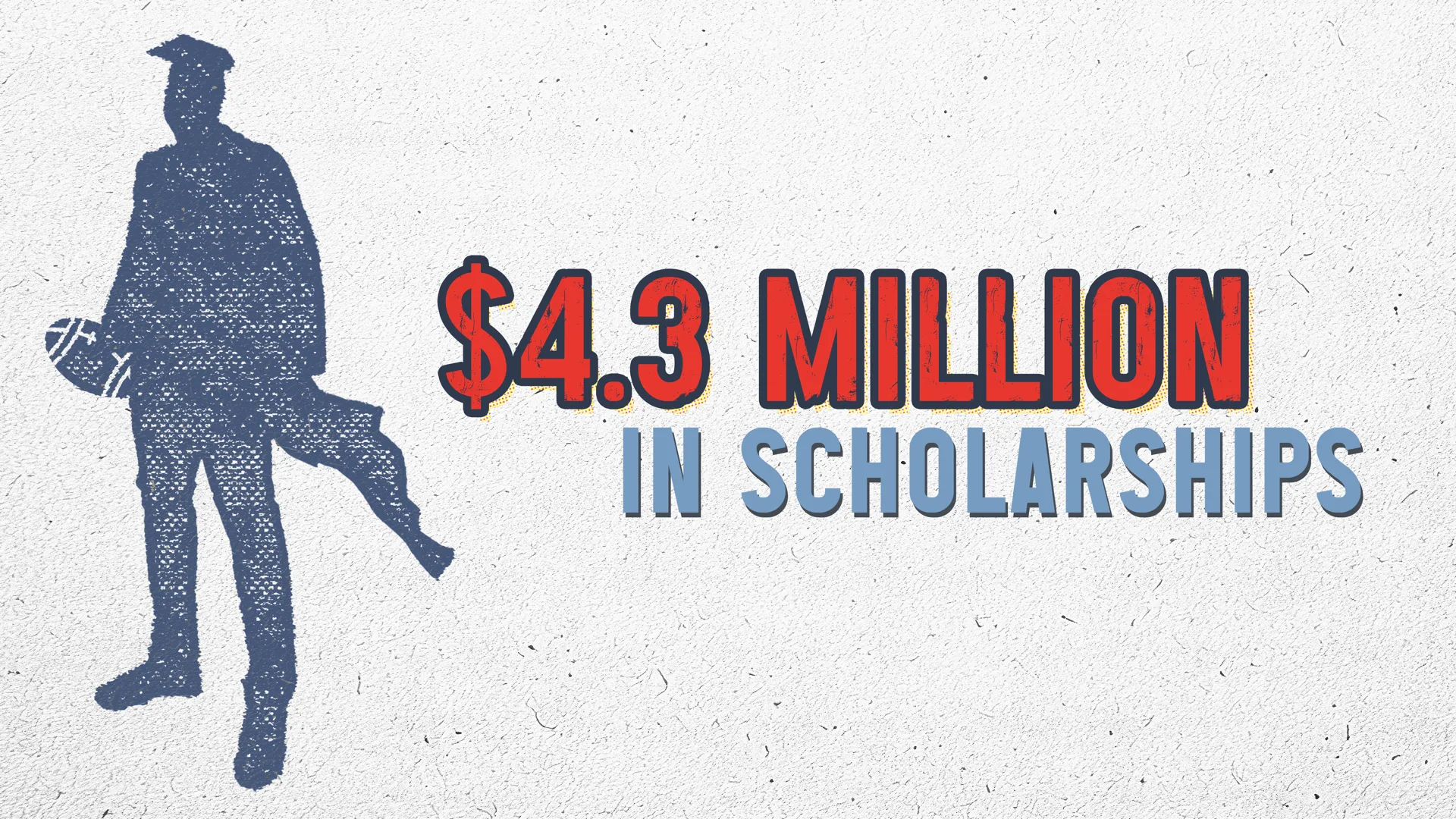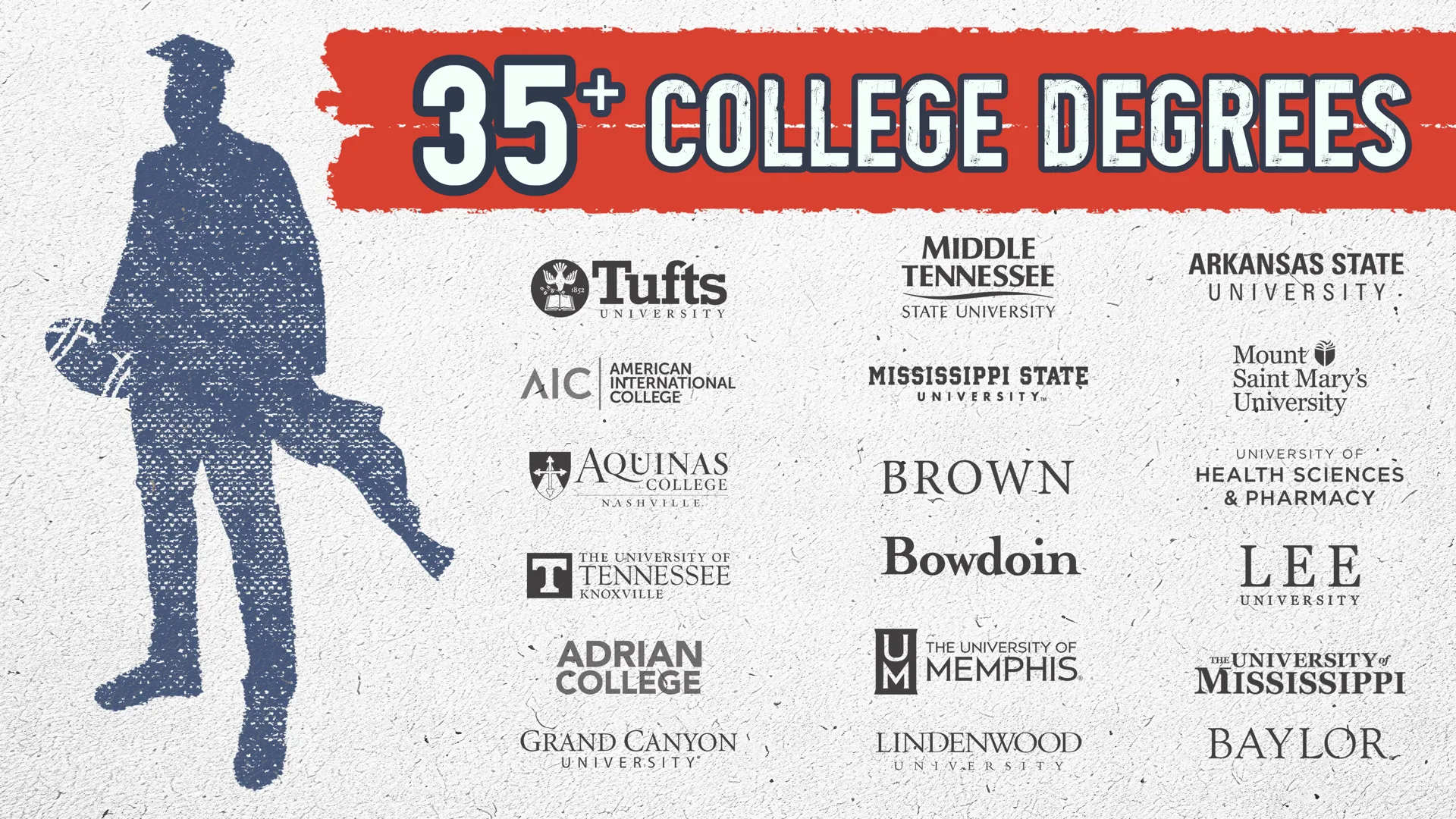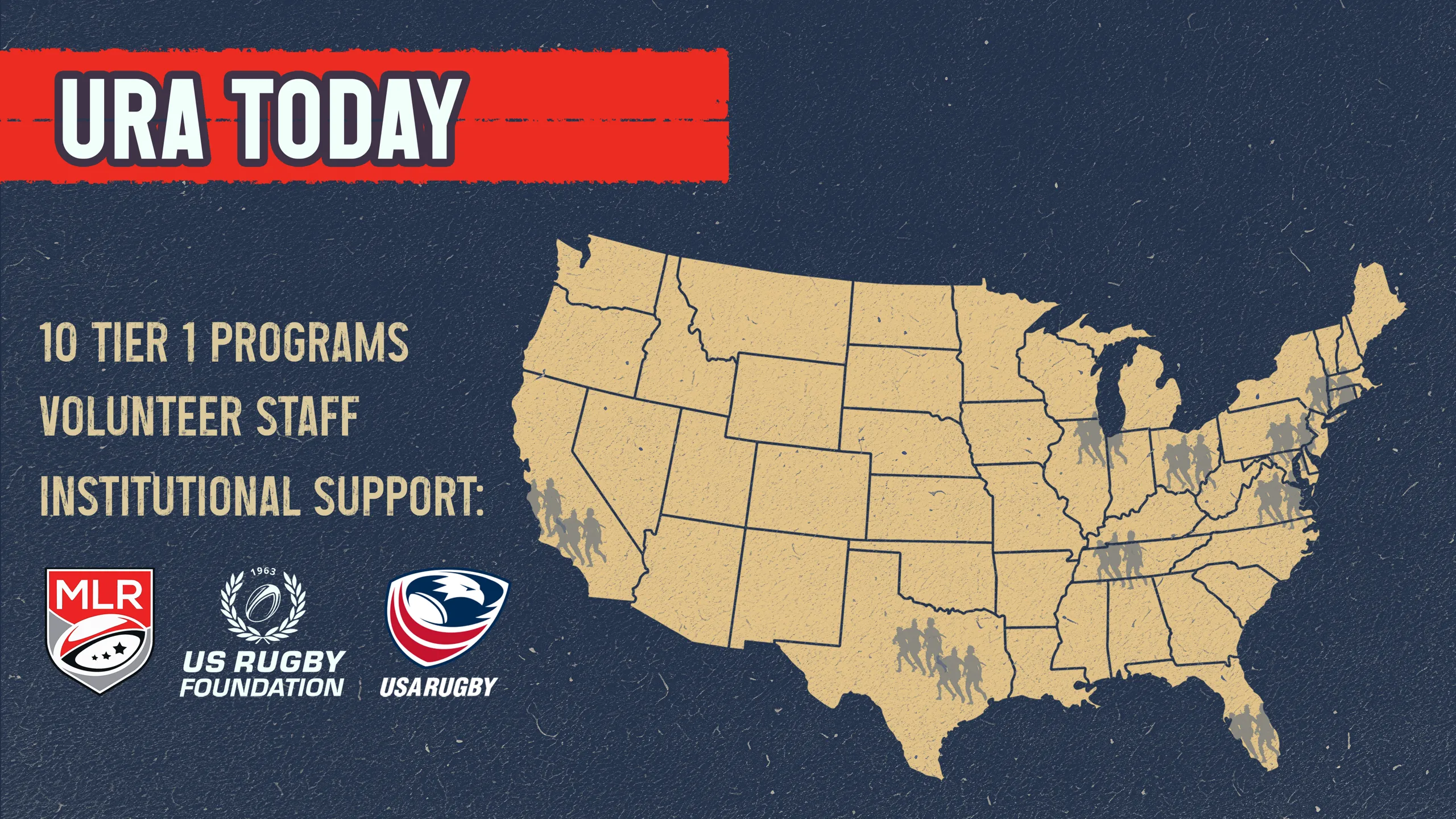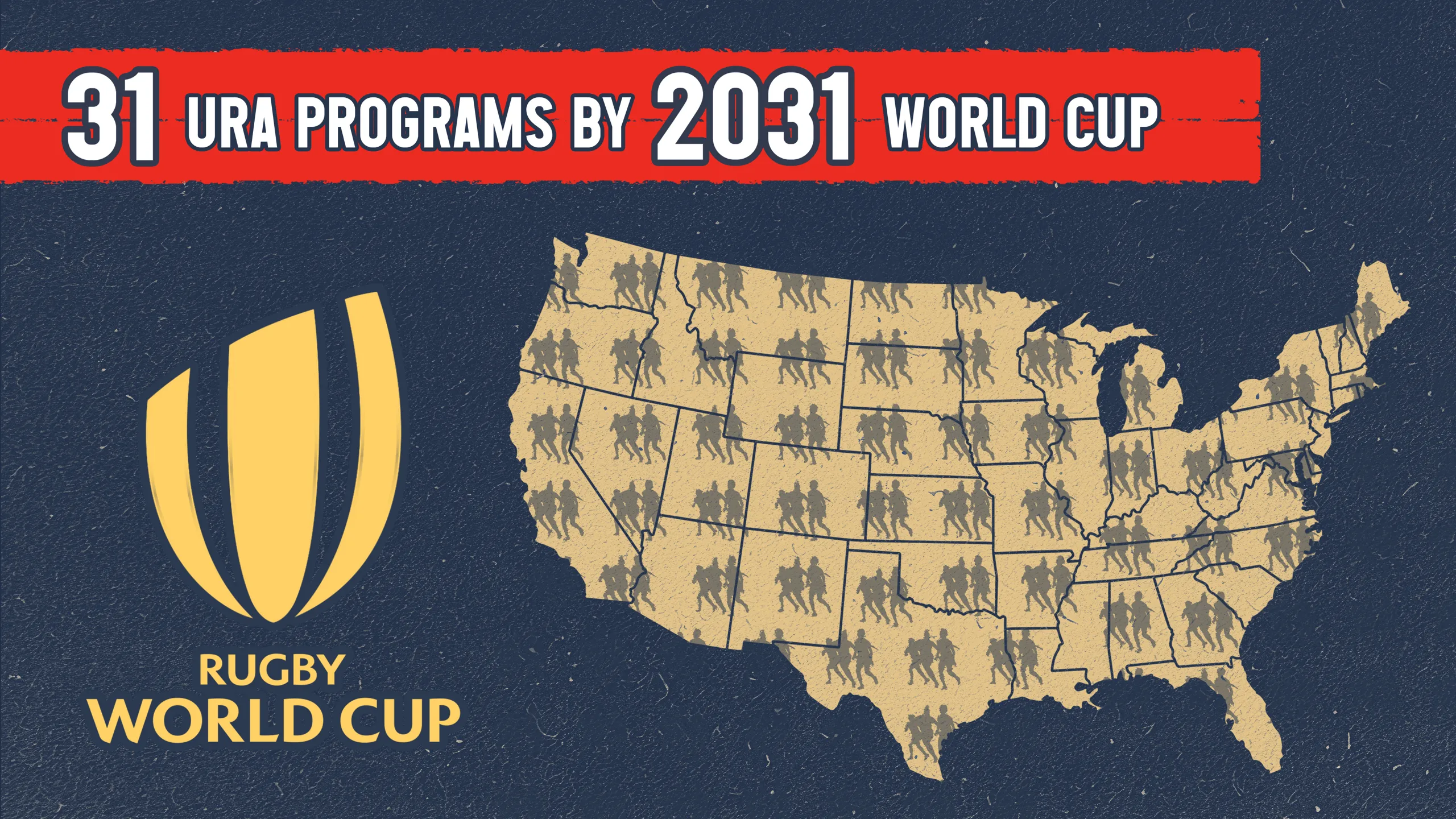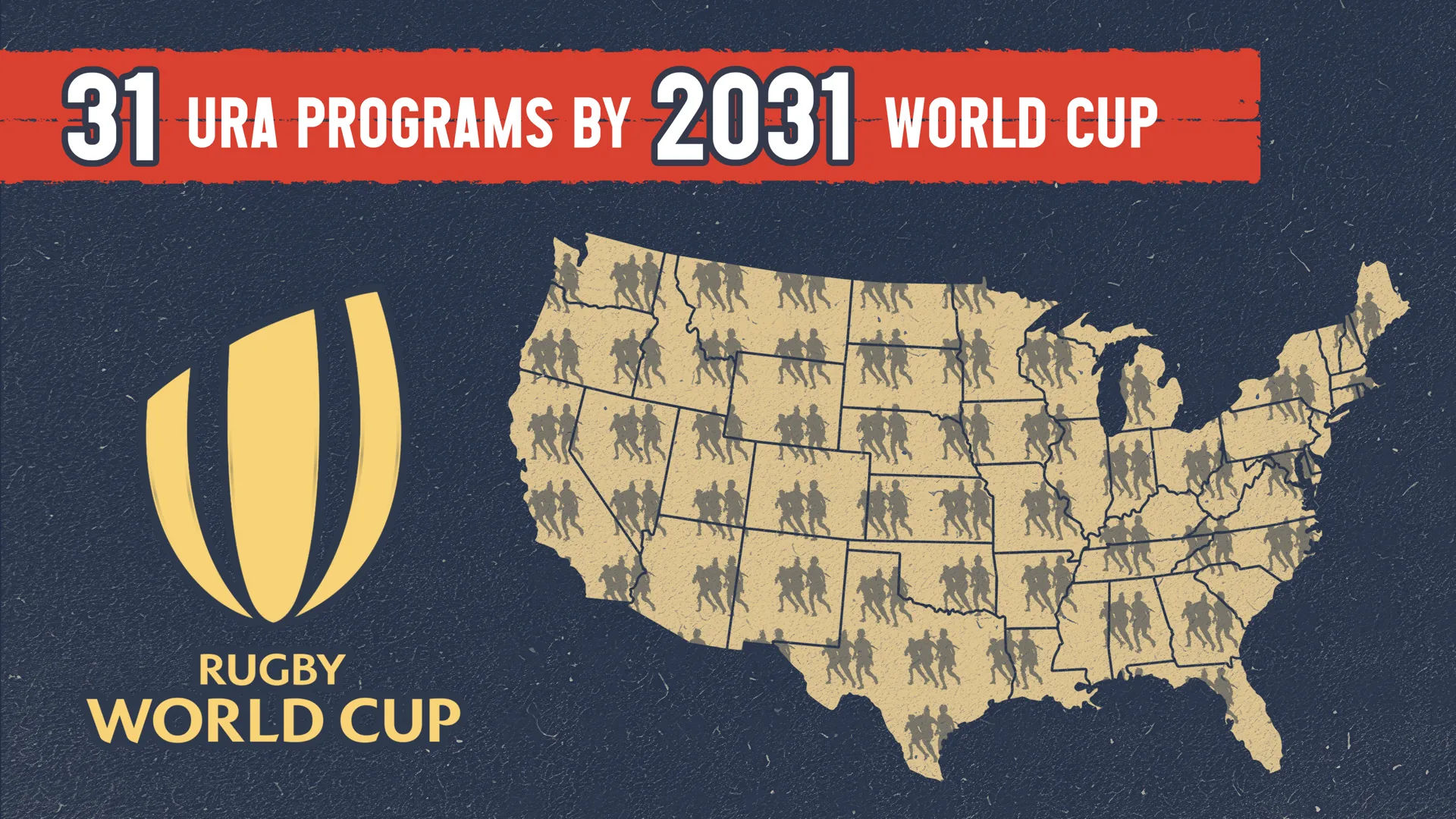Capital Campaign Pitch
Transcript
Jump to new sectionHey, thanks so much for having me in today. I think we all share a love for rugby—and in the United States there's not a lot of folks who understand what that means and why we might be so crazy about it. But with the World Cup coming up in 2031, I think we've got a lot of reason to be excited about the future of the sport.
As fans of rugby, players of rugby, I think we also share a certain way of looking at the world. We take care of each other on the field, take care of each other off the field, and I think we also share the desire to take care of other folks that aren't even on the field yet. And that's what I want to talk to you about today.
My dad was a serial entrepreneur and when my brother and I were teenagers, he moved the family to Florida. So we were pissed that he pulled us down there. We were trying to hold everything against him: "and there's no rugby down here, you took away our favorite sport!" I feel terrible, right - cause he was just being a good dad, doing what he had to do, and we're giving him hell. So what did he do? He starts a high school rugby team at our high school. We all built it together. So I got all this experience building an organization, a small one at a high school, a rugby team. Of course, at the time I had no idea how that experience would come in handy down the road.
But my dad taught me how to make things happen. My grades were awful and I barely even got into Florida Gulf Coast. But by the time I was a senior at the college, I had recruited enough of my buddies to make our own college team: I started the Florida Gulf Coast University men's rugby team my senior year. I played and coached and captained and administered the whole operation.
I graduated with a degree in political science. I wasn't sure what I wanted to do, but I knew I wanted to serve, I wanted to use my degree. So I started looking at Peace Corps, like international service assignments. But in my mind I was like, "we have so many issues in America—what if I just stay in the States, invest and serve here?"
I thought Teach for America was a really cool way to do that. I signed up and they sent me to Memphis. Pretty soon I met another teacher, Devon. We're learning about the city, learning about the economics and the lack of resources and different things like that, and we're getting fired up to go make a difference.
And as I'm learning all these things about poverty in Memphis, I'm noticing things about my own life. I'm remembering myself in England playing for the USA Under 19 rugby team, and it dawns on me that most of those kids on the team looked like me: White kids who had enough access, proximity, funding, opportunity, relationships, network to get to the rugby camp.
[advance slide to Memphis Miracle]I'm thinking about all the things rugby taught me growing up: the passion, the dedication, the self-respect, the respect for your teammates, and for the other team. What if these kids had access to all that? There is so much poverty and trauma in that pocket of Hickory Hill, Southeast Memphis, and so little opportunity to break the cycle.
These kids don't have a choice about getting born into poverty, but what if we could give them a choice about how to get out? I'm like, what if we could do it from the bottom up with our kids? Love on them, surround them with resources, great coaching inspired them. They're gonna love this game.
I already know they're gonna love the game. Once they get good at it, boy... we have some opportunity. I started talking to Devon about all this and next thing you know, we'd convinced the principal to let us start a team over at Kingsbury High School where he was teaching. And for Devon and I as coaches, it became such an exercise of healing therapy, patience, sportsmanship, and keeping our kids emotionally regulated after they were getting their butts kicked in a sport they didn't really love yet. I had little visions and dreams of like what was possible for the macro impact but at the time is was more just "can we do it?"
In year two, we started to engage another Teach for America 2012 guy who was teaching at a charter school called Freedom Prep. People saw us really take off. This was, this was pretty successful from the start. You know, we had a lot of challenges. This was extremely difficult. But from the outside facing in, if you looked at our marketing, if you look at our social media, we were successful early. We had these teams and we were scaling, and then in 2015 we started Girls Rugby. We were going broke, paying out of our own teacher salary pockets, crowdfunding to raise 2000 bucks just to get a bus to go to Murfreesboro to play a game when we qualified for state.
NEW JULY 17
But you know what? These kids didn't care. They stuck with our scrappy little team. And a decade later, they've got plenty to be proud of. Over $4 million in scholarships and. 35 plus college graduates. These are our next generation of leaders and role models and I wanna introduce you to one of them. Now, this kid, I mean, he's not a kid at this point, but this young man, Tyler has been in the family since the beginning, um, and he's totally crushing it now.
Came back to Memphis after college and is just such an inspiration. Anyway, I'll shut up for a minute and let you guys meet, and then we'll come back and talk about Urban Rugby America.
[play Tyler video]
So for the last 10 minutes or so, we've been talking all about Memphis. But check this out: there were kids in Chicago, Philadelphia, Washington DC, Los Angeles, the Bronx… clubs all over the country that shared the same mission and were making their own major impact. And man, I've gotta take a second and just let you meet a few of them. I'll just shut up and let the video speak for itself.
[play URC video recut]
I mean, did you see that? So many different communities represented so much potential and motivation? So much energy.
So one night in 2021, I was talking to Kevin Battle and we were like, “look at what everyone's already doing.
We just need to put a structure around it - the impact could be huge.”
We’d create a central organization, one that would govern our shared mission, set our collective goals, vet new clubs, distribute grants, share resources with upstart clubs, and serve as a conduit to the National League. Oh, and host an annual championship for all the players around the country.
So friends, that's Urban Rugby America.

